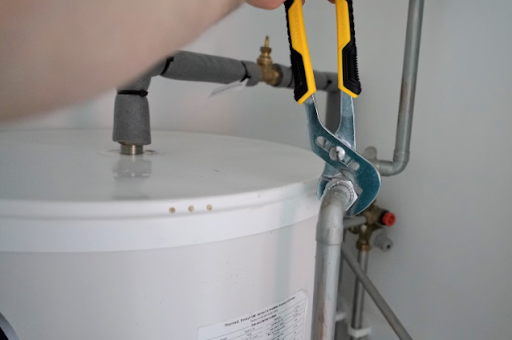A properly maintained plumbing system is important for the comfort, convenience, and safety of your home. A plumbing system in the home does many things for us. This includes everything from delivering clean water for drinking, cooking, and bathing to removing wastewater efficiently.
This system is of utmost importance in our daily life. However, without proper maintenance, plumbing problems such as leaks, clogs, and pipe damage can occur. All these things will then lead to costly repairs and inconvenience.
Let’s read about how you can keep your home plumbing system maintained.
Table of Contents
Conduct Regular Inspections
Regular inspections are important to identify plumbing issues early and prevent them from escalating into more significant problems. Schedule routine inspections of your plumbing system, including pipes, fixtures, and appliances, to check for signs of leaks, corrosion, or damage.
Look for water stains on walls or ceilings, damp spots under sinks or around fixtures, and unusual sounds such as dripping or running water. Inspect visible pipes for signs of rust, corrosion, or mineral buildup, and check for loose connections, cracks, or leaks.
Additionally, inspect appliances such as water heaters, dishwashers, and washing machines for signs of wear or malfunction. If you notice any problems with the water heater, you will need to go with a water heater replacement right away due to the sensitivity of the problem.
Prevent Clogs and Blockages
Clogs and blockages are common plumbing problems that can disturb the flow of water and cause backups and overflows. To prevent clogs, avoid flushing anything other than toilet paper down the toilet, and use drain strainers or screens to catch hair, food particles, and other debris in sinks, showers, and tubs.
Dispose of cooking grease, oil, and solid waste in the trash rather than pouring them down the drain, as they can solidify and cause blockages over time. Avoid using chemical drain cleaning, as it can damage pipes and harm the environment. Instead, use alternative methods.
Maintain Proper Water Pressure
Maintaining proper water pressure is important for ensuring the efficient operation of your plumbing system and preventing damage to pipes, fixtures, and appliances. High water pressure can strain pipes and joints, leading to leaks, bursts, and other plumbing problems, while low water pressure can indicate clogs, blockages, or pipe damage.
Monitor water pressure regularly and adjust pressure regulators or valves as needed to maintain average levels. If you notice sudden changes in water pressure or continuous issues with low or high pressure, contact a professional plumber to inspect your plumbing system and make any necessary repairs or adjustments.
Schedule Professional Maintenance
While DIY maintenance tasks can help keep your plumbing system in good condition, some issues require the expertise of a professional plumber. Schedule professional maintenance inspections to find out about the condition of your plumbing system and perform preventive maintenance tasks.
A qualified plumber can inspect hidden areas using specialized equipment, detect leaks or corrosion, and recommend repairs or replacements as needed. By doing this, you can prolong the lifespan of your plumbing system and minimize the risk of costly repairs and water damage.












